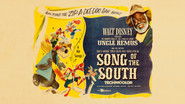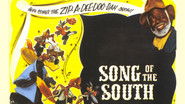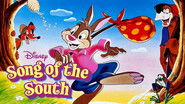Tayloriona
Although I seem to have had higher expectations than I thought, the movie is super entertaining.
Myron Clemons
A film of deceptively outspoken contemporary relevance, this is cinema at its most alert, alarming and alive.
Calum Hutton
It's a good bad... and worth a popcorn matinée. While it's easy to lament what could have been...
Janis
One of the most extraordinary films you will see this year. Take that as you want.
Rainey Dawn
This is a very good movie. In all honesty I think that if James Baskett (Uncle Remus) felt in any way this movie was racist then he would have never accepted the role (just my opinion). And he was so wonderful as the story-teller Uncle Remus! Uncle Remus is really is a wholesome character, with good morals and a wonderful teacher.Segregation was alive and well during the time of this film - and what is so good about the film - it shows how people of different races and backgrounds can come together. There *might be* an underlying and deeper message to this film - we can desegregate ourselves and live in peace with one another.On a lighter note - there is a fun yet meaningful cartoon withing the live-action picture. Plus this film contains one of Disney's most popular and famous songs 'Zip-A-Dee-Doo-Dah" 8/10
utgard14
A young boy (Bobby Driscoll) goes with his mother to live on his grandmother's plantation in Reconstruction-Era Georgia. There he is befriended by a warmhearted old man named Uncle Remus (James Baskett), who teaches the boy life lessons through stories about a wily rabbit that gets in (and out of) trouble with a fox and a bear.The most controversial Disney movie ever made. It's never been released on home video in the US due to Disney's cowardice. When you actually see it, you'll probably wonder what all the fuss is about. There are no racial slurs, no violence against blacks, no hate anywhere to be found. The racism charges are mainly due to the black people in the film speaking with a dialect that is offensive to some and the lie that the film portrays "happy slaves." The film actually takes place after slavery has been abolished. The people in the film working as servants and laborers are allowed to come & go as they please and are treated respectfully. Most definitely not slaves. Uncle Remus in particular is shown great respect by all the white people in the movie, excepting for the two little kids who are villains and the main boy's mother who wrongly worries Remus' stories are having a bad influence on her son. I'm not saying that there is nothing a modern viewer might find offensive. I'm sure some will be offended; some always are. Rather than release the movie and allow people to make up their own minds, Disney is withholding it and allowing rumor and hearsay to distort the film's reputation as something on the level of Birth of a Nation depicting the KKK as heroes. Disgusting and a real disservice to all those who worked on the film, especially James Baskett. This was the role of his career (he died just two years later) and he deservedly received a special Oscar for his wonderful performance.Controversies aside, it's a simple, warm family film with an upbeat tone and positive message. The songs are fun and the animated segments nice. It's not currently easy to find this if you live in the US but maybe someday soon Disney will pull its head from its rear and release it. But considering this is the company that still removes cigarettes and guns from its old cartoons, I wouldn't hold my breath. If that day ever comes, it will be mighty satisfactual.
Lachlan J McDougall
The bastard child of the Disney musical cannon Song Of The South has a history so littered with controversy that it is a rather difficult film to talk about. I mean, what is left to be said that hasn't already been said before?I suppose, however, a good place to start is to talk about why on earth I decided to spend my time watching it in the first place. Well, for starters I have to be honest and come right out with the fact that I threw this film into the player largely because it is so controversial. I mean, a movie that Disney has refused to release of home video within the United States, how could I go past that? Secondly, the movie does have a significant amount of historical value in the way in which it weaves live action footage (shot brilliantly in glorious Technicolor) together with animated sequences, and also in that it provides an interesting look at a particular part of society's revisionist version of the reconstruction period in the South.The plot itself is rather simple: a young boy (Bobby Driscoll) and his mother (Ruth Warrick) come down to Georgia to stay on a plantation where they meet Uncle Remus (James Baskett). Remus is a former slave and full- time story teller who throughout the film relates the old folk-tales of Bre'er Rabbit and Bre'er Fox to young Johnny in order to help the boy sort out his personal problems. Really, it's not the world's most interesting plot, but it serves well for the purposes of the film with Remus's stories sweeping from live action into animation with easy grace.The problems with this plot, however, arise quickly with the meeting of old Uncle Remus, who presents as an amalgamation of almost every racial cliché one could imagine. Not a good starting point to be sure. The other African-American characters too are presented in a very poor light, playing off the common prejudices around at the time. Their speech is hokey and sounds almost like it was torn straight from the script of a minstrel show, they sing traditional songs (with the director's showing no sensitivity to the cultural implications of such music) as they go about their work, and they are all costumed in the manner one would have expected from D.W. Griffith's The Birth Of A Nation (1915). The film also gives an incredibly naïve and revisionist view of black-white relations at the time, showing benevolent masters and servants contented with their roles of servitude.None of this is maliciously intended, I would wager, but nonetheless it is very problematic especially for an ostensible children's film, and I agree wholeheartedly with the NAACP's calls to boycott the movie when it was first released. I think the very fact that it not deliberately and maliciously offensive towards the people it marginalises makes it all ever worse. I mean, a child can easily be taught that hatefulness and overt racism are unacceptable, but to be shown such an insidious example from such a trusted source as Disney can provide a challenge for a parent to explain away. The movie contains no message or moral of equality, just a sly suggestion that 'certain people' should know their 'place'.I do not, however, agree with any calls to forget this film entirely. It has earned a place in the historical cannon of feature films and as such is deserving of study, analysis, and critical thought regarding its artistic merits. Song Of The South has a definite place in film libraries and the collections of students and historians, and I think that it is a place that needs to be preserved and not glossed over. I would just recommend that it be kept out of the hands of children.As an aside to this discussion of the film's problematic racial presentations I will also say that I have scored this film rather low for the simple fact that it is boring. It really doesn't quite reach the same heights of grand magic that Disney films often do. The story is fractured and episodic, making it hard to become invested in the plight of the characters, the songs (bar one) are not particularly memorable, and, to be honest, the primary protagonist is unlikeable. It's not poorly executed, in fact some of the location shooting and technical trickery is actually rather inspired, but it is poorly constructed as a film.So, in conclusion, I'm going to have to express my ambivalence towards this movie. It has some artistic merits, but these are tempered by a series of filmic shortcomings, and it has a definite degree of historical and cultural value, but that comes primarily from the fact that it is really rather racist.I suppose the only thing you can do is watch it for yourself and make up your own mind about how much value one can ascribe to this outcast from the Disney family.
kgprophet
I believe it has been about 30 years since I've seen this film. One may think this banned Disney feature with only some portions of it animated would have a cult status. The ban is by Disney itself, and it is not a cult film because on it's own it is just another nice children's film. Watching for the first time as a grown adult, I could identify the signature weepy music and somewhat adult undertones. The animation was fine, the rabbit reminded me of the rabbit in Winnie the Pooh.The happy tone is what you expect for a children's film, offset by upsets, such as a Mother denying a child's wish to have a puppy. But the absence of this film in recent memory left a hole in my childhood recollections. Having been able to view a great transfer recently, I could appreciate the innovative mix of live action and animation (for only half of the running time). The effect looked very clean for the time period, and this digital copy made all the live characters very vivid.The character Uncle Remus won the actor an Academy Award, portraying a gentle and caring man, who becomes a surrogate father while the boy is staying at a southern plantation. That warm feeling is part of what the Disney 'magic' was all about back then. Ultimately, this film is geared for too young of an audience to be as solid of a classic as their many more popular films. But it has a right to be a part of our memories, and banning the film dishonors the performances and the art of this classic.








